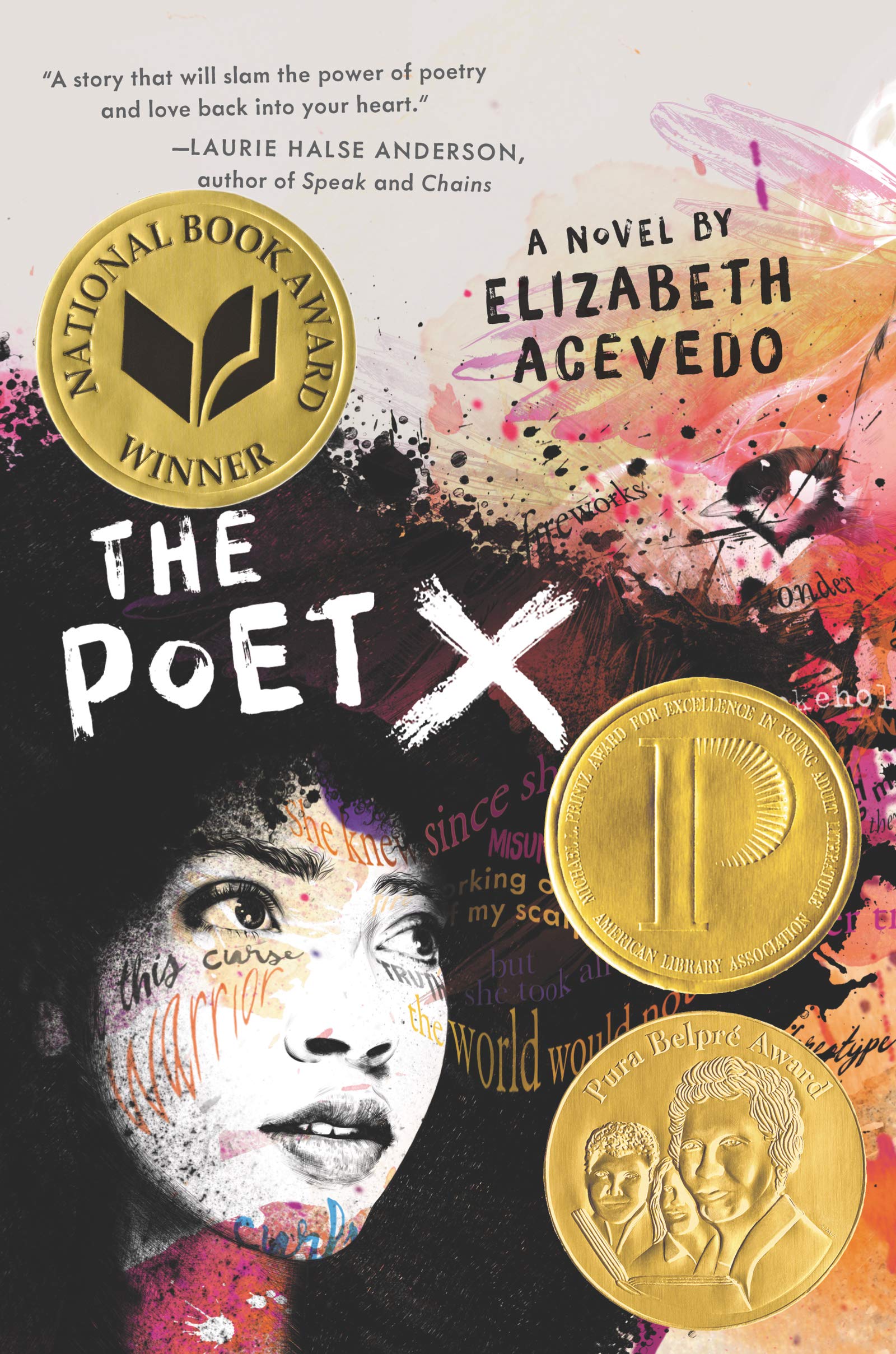By Rachel Smoka-Richardson
“I only know that learning to believe in the power of my own words has been the most freeing experience of my life. It has brought me the most light. And isn’t that what a poem is? A lantern glowing in the dark.” ― Elizabeth Acevedo, The Poet X
I hate poetry.
Let me clarify: I hate writing poetry.
My elementary school hosted a poet-in-residence who made us write poems comparing our family to an object. Even at my young age I knew it was a stupid assignment, but I was still mad that my comparison of family and watch was not selected for the final chapbook.
Fast forward through a poetry-free decade. During a college seminar on The Canterbury Tales, the professor asked the students to write a poem about spring and read it out loud to the class. Most of the students wrote some dreck about the flowers and the sunshine and the birds. Each poem received nodding and praise.
Then it was my turn. I read what I thought was a very clever sonnet about last year’s Halloween pumpkin that had been forgotten until the spring sunshine melted the snow away.
The response: complete silence.
I was. Done. With. Poetry.
After many glorious years of not writing poetry, in the fall of 2018 I signed up for the Society of Children’s Book Writers and Illustrators’ 2019 winter conference. At these conferences I try to choose workshops about topics I know nothing about. I selected a workshop on writing the novel-in-verse, taught by someone named Elizabeth Acevedo. I figured I might gather some useful information I could pass on to a fellow writer.
 Two weeks before the conference, Acevedo’s debut book, the novel-in-verse THE POET X, won the highest honor in young adult literature, the Michael L. Printz Award. (The book has also won a long list of awards, including the National Book Award for Young People’s Literature.) And suddenly my odd choice in workshop seemed pretty brilliant.
Two weeks before the conference, Acevedo’s debut book, the novel-in-verse THE POET X, won the highest honor in young adult literature, the Michael L. Printz Award. (The book has also won a long list of awards, including the National Book Award for Young People’s Literature.) And suddenly my odd choice in workshop seemed pretty brilliant.
I hurried up to read The Poet X before the conference. It is a magnificent novel-in-verse – it tells the story of Xiomara Batista, a teenager in Harlem who is struggling to be heard. The novel-in-verse is the perfect container for a main character who uses poetry as the primary way to express her thoughts. It is still the best book I’ve read in 2019.
____________
 Rachel Smoka-Richardson earned her MFA in writing for children and young adults, as well as a graduate certificate in picture book writing, from the Vermont College of Fine Arts. Her critical thesis, “Developing Character Through Revision: Examining the Evolution of Because of Winn-Dixie,” won both the July 2011 VCFA Critical Thesis Award and the 2011 Kerlan Essay Award from the Kerlan Collection at the University of Minnesota. Smoka-Richardson’s picture book manuscript THE BURPING PRINCESS was the recipient of a 2011 Shabo Award from the Loft Literary Center. She received a Minnesota State Arts Board Artist Initiative grant in 2016 for her middle grade manuscript HELEN ARRANGEMENTS. Smoka-Richardson has served several times as a judge for the Minnesota Book Awards, and is a proud member of the Society of Children’s Book Writers and Illustrators.
Rachel Smoka-Richardson earned her MFA in writing for children and young adults, as well as a graduate certificate in picture book writing, from the Vermont College of Fine Arts. Her critical thesis, “Developing Character Through Revision: Examining the Evolution of Because of Winn-Dixie,” won both the July 2011 VCFA Critical Thesis Award and the 2011 Kerlan Essay Award from the Kerlan Collection at the University of Minnesota. Smoka-Richardson’s picture book manuscript THE BURPING PRINCESS was the recipient of a 2011 Shabo Award from the Loft Literary Center. She received a Minnesota State Arts Board Artist Initiative grant in 2016 for her middle grade manuscript HELEN ARRANGEMENTS. Smoka-Richardson has served several times as a judge for the Minnesota Book Awards, and is a proud member of the Society of Children’s Book Writers and Illustrators.







